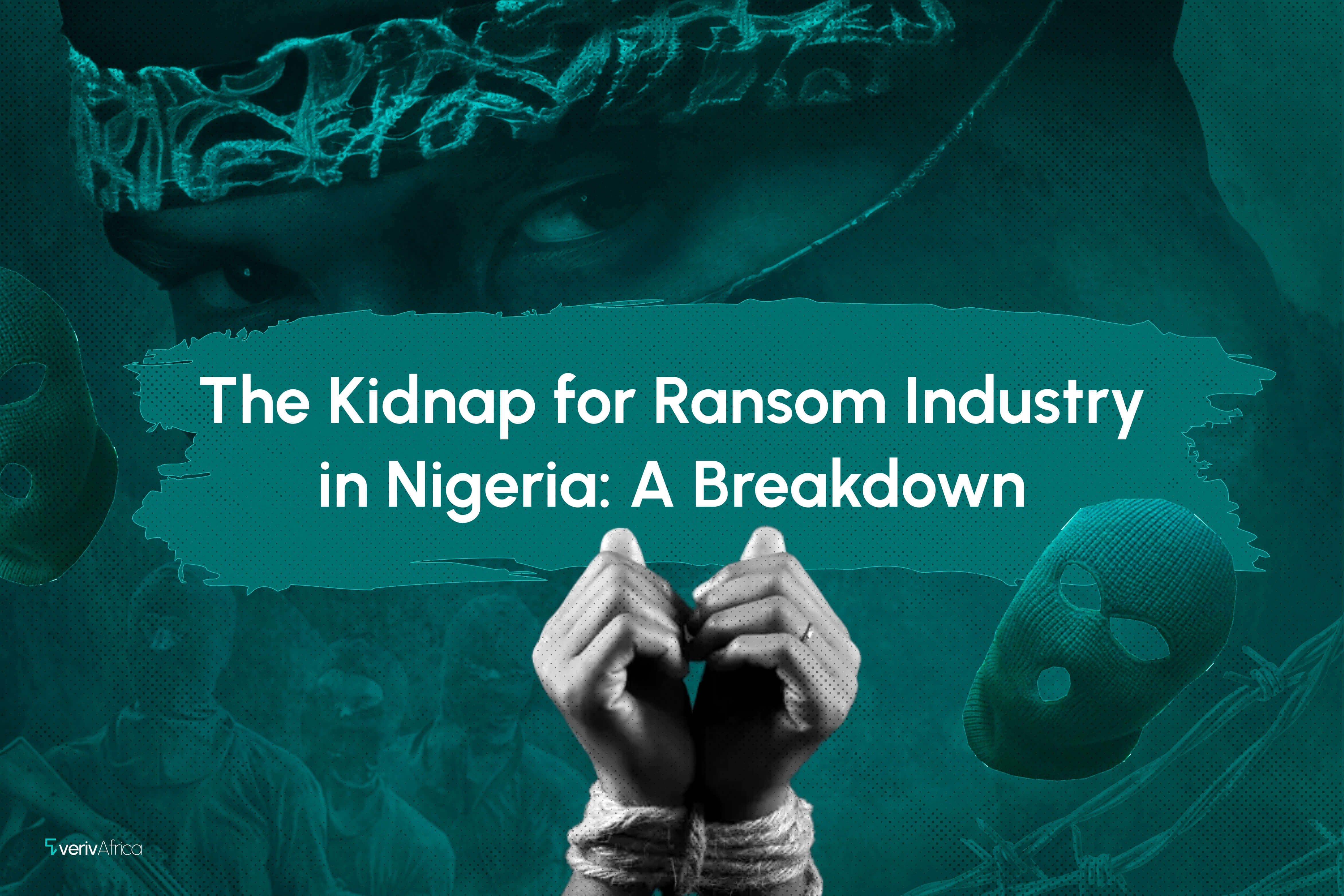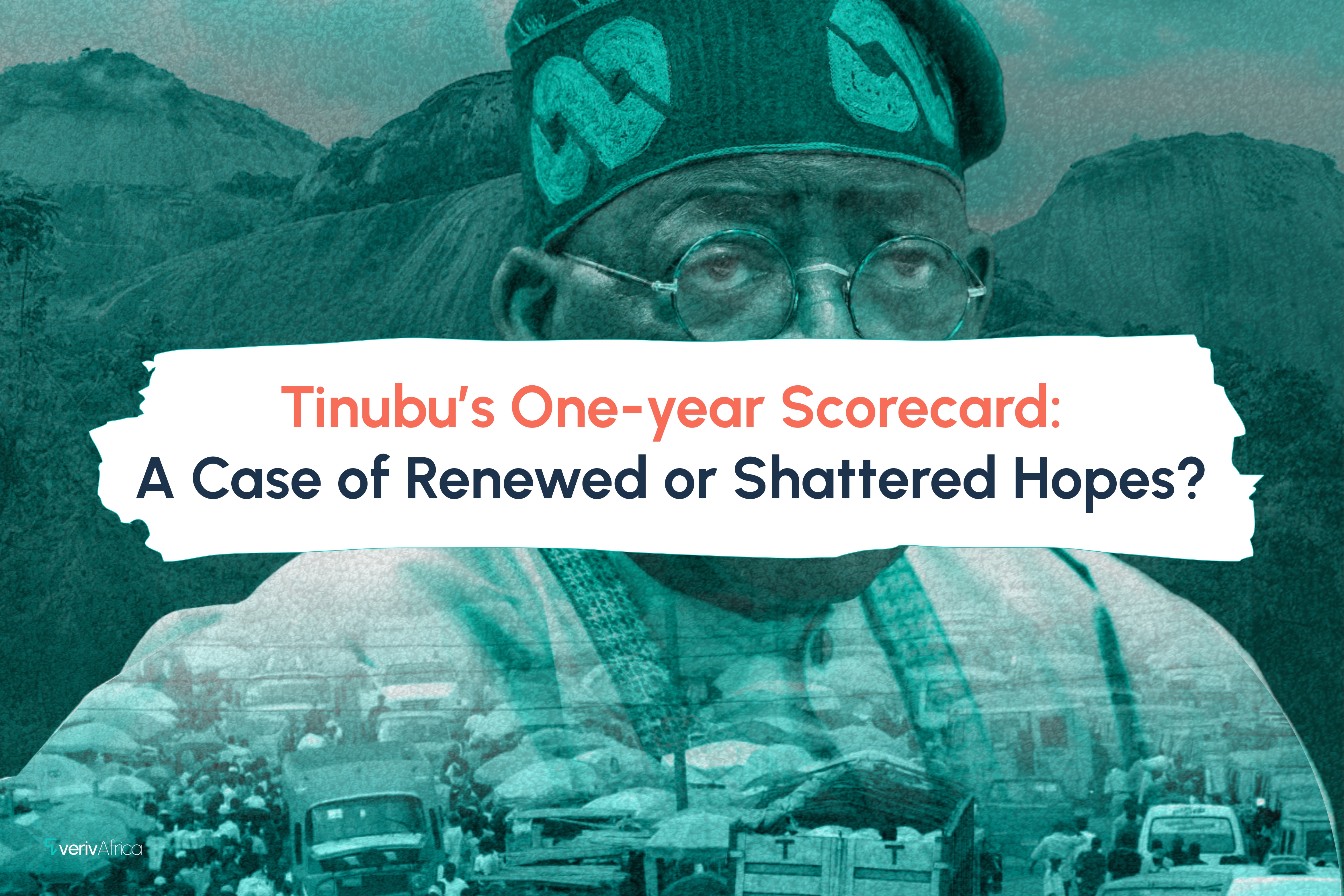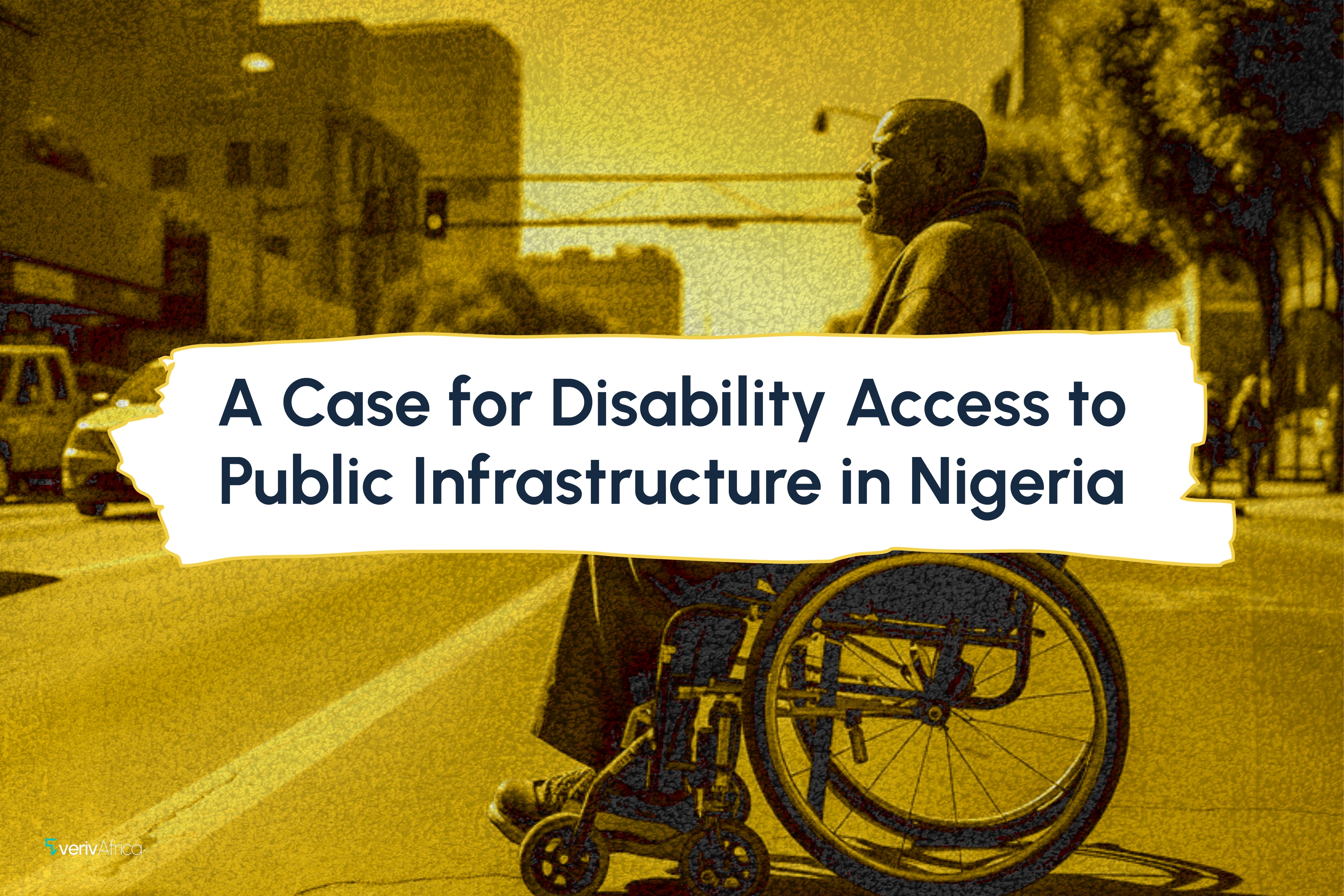The Kidnap For Ransom Industry In Nigeria: A Breakdown

In January 2024, Nabeeha Al-Kadriyah, her fathers and four sisters were abducted from their home in Abuja, Nigeria’s capital. Despite attempts to negotiate a ransom after her father’s release, Nabeeha was gruesomely murdered, and the assailants notified her family to pick up her body. Terrified by the brazenness of this violence, concerned citizens organised fundraisers to raise ransom money for her sisters, who were still in captivity. Nabeeha and her sisters are part of at least 85 people reported to have been kidnapped between the 4th and 7th of January 2024. In one single incident during the same period, 22 people were abducted from a village on the outskirts of Abuja.
Nigeria’s kidnap-for-ransom industry has become one of the most significant security threats bedevilling the country. Over the past decade, it has interwoven with other security challenges and snowballed in severity, frequency and geographical spread. The Lagos-based consultancy firm SBM Intelligence estimates that 3,620 people were abducted in 582 incidents between July 2022 and June 2023, resulting in at least N5 billion in ransom demands. These figures provide a glimpse into why unscrupulous individuals would consider it lucrative. Kidnapping in Nigeria is orchestrated by a web of organised and unorganised armed groups with a wide range of associates serving as informants, collaborators, and intermediaries.
The terrifying trend of seizing people to make political and financial demands can be traced to militancy in the oil-rich Niger Delta region, particularly in the 2000s after Nigeria's return to civilian rule. During that period, militants targeted foreign oil workers and held them in camps located deep in the mangroves until negotiations eventually led to their release. The practice later exacerbated into pirates hijacking vessels in the Gulf of Guinea and taking the crew hostage. These armed groups orchestrated these attacks as a protest against the suffering and underdevelopment in their communities caused by the activities of corporations drilling for oil.
These heists were a valuable source of financing, providing income and sustaining their campaigns against the government and oil companies. The intensity of kidnappings has reduced in the coastal regions, but its impact, especially on the oil sector, continues to linger. In June 2023, eight workers on a boat were kidnapped in the southwestern commercial city of Lagos, a place where such incidents are rare.
What Is Happening Now
The current wave of kidnappings for ransom is connected to the surge in violent crimes and the complex web of armed conflicts in the country. Kidnapping in Nigeria is fueled by several factors acting independently or working as a combination of factors reinforcing each other. These factors include financial incentives, political reasons, communal conflicts, terrorism, ideology and separatism. Additionally, the low-risk and high-reward nature of the crime, due to insufficient response from security forces and the flawed criminal justice system, has played a part in fueling the spike and encouraging the growth of copycats.
The northern region can be described as the epicentre of the present epidemic because of the activities of terror groups, armed bandits, and criminal syndicates operating in the region. In the northeast, Boko Haram (Jamaat Ahl as-Sunnah lid-Da'wah wa'l-Jihad) and its splitter Islamic State West Africa Province (ISWAP) are known to abduct people as part of their over a decade-long insurgency campaign. The most notable incidents were the abductions of the Chibok and Dapchi schoolgirls in 2014 and 2018, respectively. In addition, the insurgents regularly target aid workers and government-affiliated individuals.
Ideological and financial reasons primarily drive these heists. When a hostage is considered an asset eligible for exchange, the insurgents communicate the conditions for release. For example, a negotiation to release some Chibok schoolgirls followed the Bring Back Our Girls campaign, which drew international attention. The deal brokered by the Swiss government and the International Committee of the Red Cross, which occurred in two batches in 2016 and 2017, was reported to have involved the Nigerian government freeing five imprisoned Boko Haram fighters and paying three million euros to the insurgents.
The status and affiliations of hostages dictate the pulse of negotiations for their freedom. Intermediaries facilitate talks for government or humanitarian workers. In other cases, the captors contact the loved ones of the captives and their community with the demands. These groups have also killed, enslaved and held back some of the captives despite being considered eligible for a possible deal. The insurgents are known to decline talks for the release of some victims who may have been manipulated into marrying fighters or joining their cause. At the same time, some hostages are enslaved. In the case of abducted security forces, they are not offered up for exchange.
In the northwest and parts of the northcentral region, the prevailing banditry is intertwined with criminal activities such as cattle rustling and kidnapping. Perpetrators are notorious for moving in motorcycles to raid communities. What began with attacks in rural areas extended to setting up ambushes on key interstate highways like the Abuja-Kaduna road. The trend after that was to move to urban areas accessible from their enclaves through interconnecting forest areas.
The presence of terror groups has also complicated the security environment. In March 2022, an armed group linked to Boko Haram attacked and kidnapped several passengers off a train headed to Kaduna from Abuja. The group demanded the release of their children held by the government, a condition reportedly agreed to by the government. It is also believed that they raised over a billion from ransom payments made by families of the victims. In one instance, the abductors reacted harshly to an attempt to obstruct the flow of the requested cash.
Boko Haram was involved to a certain degree in the abductions of hundreds of schoolboys in the Kankara area of Katsina. This incident in December 2020 was the first of many school raids and kidnappings, a situation which has further deteriorated access to education in the region. The United Nations Children's Fund (UNICEF) assesses that more than 1,400 schoolchildren and over a dozen teachers were abducted from schools between December 2020 and 2022 in Nigeria. The escalating threat also led to the closure of 11,536 schools, disrupting their learning and possibly losing about $3.4 billion in their potential lifetime earnings.
In parts of southern Nigeria, armed groups attack communities and roads to abduct victims, who subsequently are hounded into enclaves. In the southwest, the rate of incidents has become alarming. Recently, two traditional rulers were killed in Ekiti state during a failed abduction attempt. In another incident, five schoolchildren and three staff were kidnapped along a road in Ekiti on their way home from school. In the southeast, criminal groups associated with the separatist violence plaguing the region have also been accused of using abductions to extort money and finance their operations.
The use of kidnapping for ransom is not only isolated to groups participating in armed conflicts and operating from ungoverned and unprotected forests. It involves urban criminal gangs who are attracted by potential returns from engaging in the trade, which yields more returns when compared to traditional violent crimes.
The Response
Often, particularly after public outcries, authorities have deployed security forces in high-risk locations as a show of force to deter attacks. This agitation has led to the rollout of security interventions by the military or police, which are usually ad-hoc. For example, following the January attacks in the country’s capital, the police launched a Special Intervention Squad (SIS) comprising personnel and equipment designed to enforce security.
The military also routinely carries out large-scale ground operations against strongholds of these groups that have occasionally led to the recovery of victims. These operations are done either as an independent counteraction or part of the broader response to the insecurity in a specific geographical area. These approaches often create relative security for a short period as the attacks resume when these personnel are redeployed to other hot zones or back to their base. The groups also tend to move away as soldiers advance and hibernate in new sanctuaries, where they can still harass citizens in nearby locations and conduct attacks.
The police and Department of State Services (DSS) are known to use their intelligence to track and apprehend suspects involved in criminal enterprise. They have also intervened, in some instances, in urban environments where tracking and apprehending these kidnappers is less challenging. However, their efforts have yet to make a significant difference in eliminating the menace. The availability of the capacity to track assailants in remote areas has not translated to a tactical and operational proficiency to conduct rescue raids or deny freedom of action. The parliament has also sought to discourage ransom payments by prohibiting them through the Terrorism Prevention Law . From the trend, one can infer that this will be difficult or impossible to implement unless the public has confidence in security forces and their ability to rescue victims.
The government will likely continue struggling with the problem due to its deep roots in the deteriorating economic conditions in Nigeria and the various armed conflicts plaguing many regions. A long-term solution would require addressing the underlying social, economic and policing issues. The deterioration of opportunities and livelihood in rural areas is a significant problem that needs to be solved. This problem was highlighted by the National Bureau of Statistics (NBS) report revealing that 63% of persons living in Nigeria (133 million people) are multidimensionally poor, with rural areas accounting for 72% of poor people.
The government must invest in programs to enhance agricultural productivity and household incomes to remedy this. In addition, investments in education to expand livelihood opportunities and local governance to reduce social grievances, strengthening law enforcement and the criminal justice system are also essential. Providing adequate resources to respond and prosecute the perpetrators effectively will be valuable to deterring and disrupting the activities of these groups.
References
Maryam Abdullahi, (2024) Outrage as one of 6 sisters abducted in Abuja ‘dies in captivity, Thecable. https://www.sbmintel.com/wp-content/uploads/2023/08/202308_Kidnap-report.pdf
El-Ameen Ibrahim, (2024) Police arrest suspects in Abuja kidnappings, killing of Nabeeha, PremiumTimes, https://www.premiumtimesng.com/news/top-news/663088-police-arrest-suspect-in-abuja-kidnappings-killing-of-nabeeha.html
SBM Intelligence, (2024) The Economics of Nigeria’s Kidnap Industry, https://www.sbmintel.com/wp-content/uploads/2023/08/202308_Kidnap-report.pdf
Onwuka Nzeshi, (2002) Nigeria: 10 Oil Workers Kidnapped in Bayelsa, All Africa, https://allafrica.com/stories/200204040221.htm l
TheNewHumanatirian, (2003) Remaining ChevronTexaco hostages released, https://www.thenewhumanitarian.org/report/47434/nigeria-remaining-chevrontexaco-hostages-released
Evelyn Usman and Godwin (2023) Oritse Tension over whereabouts of eight kidnapped oil workers in Lagos, Vanguard, https://www.vanguardngr.com/2023/06/tension-over-whereabouts-of-eight-kidnapped-oil-workers-in-lagos/amp/
Joe Parkinson and Drew Hinshaw (2017) Freedom for the World’s Most Famous Hostages Came at a Heavy Price, Wall Street Journal, https://www.wsj.com/articles/two-bags-of-cash-for-boko-haram-the-untold-story-of-how-nigeria-freed-its-kidnapped-girls-1513957354
Hindi Livinus (2021) Boko Haram demanded N30m ransom for 30 Adamawa victims in captivity, Punch https://punchng.com/boko-haram-demanded-n30m-ransom-for-30-adamawa-victims-in-captivity/?amp
Daily Trust, (2022) Kaduna Train Attack: We Released Wife, Children Of Terrorists’ Leader As Demanded–Presidency, https://dailytrust.com/kaduna-train-attack-we-released-wife-children-of-terrorists-leader-as-demanded-presidency/
Lami Sadiq, Mohammed I.Yaba (Kaduna), Muideen Olaniyi & Idowu Isamotu, (2022) Kaduna Train: How Ransom Blockade Triggered Hostage Beating Video. DailyTrusthttps://dailytrust.com/kaduna-train-how-ransom-blockade-triggered-hostage-beating-video/
Al Jazeera, (2020) Boko Haram claims kidnapping of hundreds of Nigerian students,https://www.aljazeera.com/amp/news/2020/12/15/boko-haram-claims-kidnapping-of-hundreds-of-nigerian-student s
UNICEF, (2022) UNICEF calls for safety of learners in schools to encourage girls’ education,https://www.unicef.org/nigeria/press-releases/unicef-calls-safety-learners-schools-encourage-girls-education
ThCable, (2024) Suspected kidnappers kill two traditional rulers in Ekiti https://www.thecable.ng/suspected-kidnappers-kill-two-traditional-rulers-in-ekiti/amp
Al Jazeera (2022), Nigeria outlaws ransom payments, kidnap now punishable by death,https://www.aljazeera.com/news/2022/4/27/nigeria-outlaws-ransom-payments-abduction-punishable-by-death
National Bureau Of Statistics, (2022) Nigeria Launches its Most Extensive National Measure of Multidimensional Poverty, https://nigerianstat.gov.ng/news/78#:~:text=In%20Nigeria%2C%2040.1%25%20of%20people,of%20people%20in%20urban%20areas
Similar Insights
View All
Lagos State Single Use Plastic Ban: Rethinking Nigeria's Policy Environment

Learning Poverty: Policy Gap and Pathways to Progress

A Data-Driven Argument for State Police in Nigeria

How to Make the Nigeria Startup Act Work

How Much Data Does Policy Making in Nigeria Need?

Tinubu’s One-year Scorecard: A Case of Renewed or Shattered Hopes?

A Case for Disability Access to Public Infrastructure in Nigeria
Don't miss out!
Our subscribers receive firsthand updates on our recent content. We hope you become one, too.
It's free, so why not?

